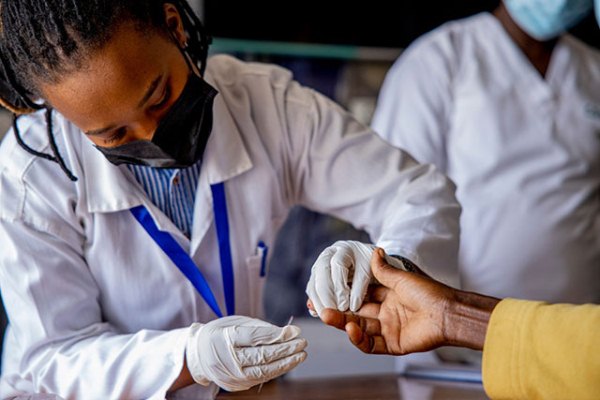
Rwanda has joined yesterday the rest of the World to celebrate the “World Hepatitis Day” with the theme, “Hepatitis can’t wait”, calling on all Rwandans to unite efforts to eliminate viral hepatitis that continues to be a public.
Viral Hepatitis is still a global health threat causing 1,100,000 deaths with a person dying every 30 seconds from a hepatitis related illness. Despite the current global COVID-19 Pandemic, Hepatitis remains challenging and continues to cause preventable deaths.
To address the burden of Hepatitis, Rwanda has decided to not wait, rather committed to acting and eliminating viral hepatitis by establishing a national plan for Viral Hepatitis C (HCV) elimination launched in December 2018 and has been highly supported by Her Excellence the First Lady of Rwanda Mrs. Jeannette Kagame, who has been the champion of this campaign since its inception until today.
Throughout the years, Rwanda has made significant progress in implementing Hepatitis C Virus control measures, including early screening of blood supply, training and enforcement of safe injection practices, the establishment of a Hepatitis program in 2011 and the publication of the first viral Hepatitis Policy and Guidelines in 2013.
Rwanda has simplified the diagnostics and treatment methodology by the introduction of Rapid Diagnostic Tests for a 3 months Hepatitis C Virus treatment course with less or no side effects and a cure rate more than 90%. Rwanda has negotiated a price record for WHO pre-qualified DAAs from $1,200 to only $60 for the full 3 months’ treatment course of hepatitis C.
Rwanda decentralized Hepatitis services from four facilities to all public facilities in country providing screening and treatment services throughout the national territory.
In the same framework to increase access to services, general practitioners and nurses have been trained to support specialists in hepatitis management. Currently, over 1000 healthcare workers are trained and available to provide hepatitis services across the country.
Dr. Sabin Nzanzimana, the Director General of Rwanda Biomedical Centre emphasized that all these measures contributed towards the final phase for elimination Hepatitis C virus.
“In the last 2 years, over 5,000,000 out of 7,000,000 people have been tested for HCV to screen in order to achieve elimination; we have been able to treat and cure over 50,000 people found infected with Hepatitis C.” Said Dr. Nsanzimana
With the above-mentioned efforts going on presently, the prevalence of Hepatitis C has reduced to 1-2%. The program is now implementing “the last mile” of HCV elimination.
“The year 2021 is a determinant year for us because we are working on the last mile towards achieving this important national goal.” Said Dr. NSanzimana
Regarding Hepatitis B, on one hand, about 4,000,000 people have been tested for HBV and over 5,000 people are on a lifelong HBV treatment. On the other hand, the vaccination campaign is another effort to curb the Hepatitis B virus.
Dr. Serumondo Janvier, the Director of Sexually Transmitted Infections and Viral Hepatitis Unit in Rwanda Biomedical Center said that vaccination campaign of Hepatitis B is another important activity to curb the infection, “ currently, we have vaccinated more than 7 million people in general, we have put more efforts in vaccinating the new born since 2002, today the young aged below 19 have received hepatitis B vaccine, we also target groups at risk such as people living with HIV, Sex workers, pregnant women, and prisoners.”
Jeanne, a resident of Remera Sector, Gasabo district, has got tested for Hepatitis virus today at Remera health centre and tested negative. She has expressed satisfaction about the service she was offered, “I came to seek treatment, when I learnt they are testing hepatitis virus, I got tested to check my health status. The medical care was good, I’m so happy I’ve tested negative now. I call upon my fellow citizens to always seize the opportunity and get tested for hepatitis virus to know their health status.”
Rwanda through the Ministry of Health is committed to showcase that Hepatitis elimination is possible in a resource-limited setting and could be achieved even before the WHO 2030 set timeline. (End)
